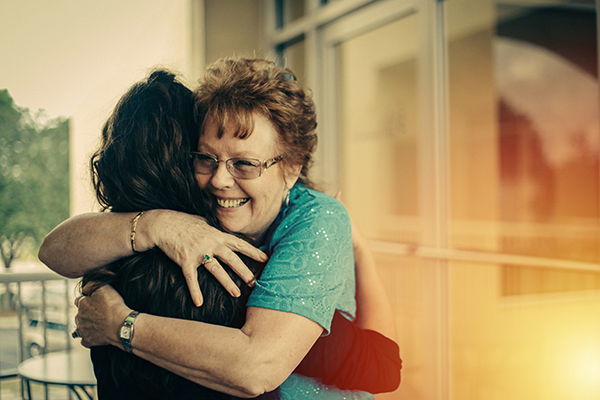Written by Daron Brown
From his column Pressing On
 A few decades ago, a Church of the Nazarene in Clarksville, Tennessee, opened its doors to a single mom with three children in tow. From that point forward, as one of those children, my life was given trajectory. Those people became family to my family. They welcomed us to their tables, ushered us into places of ministry, and helped us navigate our messy lives. Eventually, they provided some of our first jobs and helped me to cover the costs of college. In retrospect, I cannot imagine the people of that church looking at us when we walked in the door and considering that we represented a good investment of time, resources, or energy. They were simply expressing love and concern for others, which is what the church is meant to do.
A few decades ago, a Church of the Nazarene in Clarksville, Tennessee, opened its doors to a single mom with three children in tow. From that point forward, as one of those children, my life was given trajectory. Those people became family to my family. They welcomed us to their tables, ushered us into places of ministry, and helped us navigate our messy lives. Eventually, they provided some of our first jobs and helped me to cover the costs of college. In retrospect, I cannot imagine the people of that church looking at us when we walked in the door and considering that we represented a good investment of time, resources, or energy. They were simply expressing love and concern for others, which is what the church is meant to do.
It would be several years after this before our denomination would adopt what are called core values, which state that we as Nazarenes are: Christian, Holiness, and Missional. No one in the congregation that became my home in the mid-1980s went around saying: “Christian! Holiness! Missional!” Yet years before these values were explicitly affirmed, I witnessed them being lived out. Today, I am a Christian and a Nazarene because the people of God in a Middle Tennessee church did more than proclaim values. They practiced them.
In recent years, the term “Community of Practice” has been used to describe a growing field of study. The idea is not new, but articulation of the concept is. Etienne Wenger describes communities of practice as “groups of people who share a concern, a set of problems, or a passion about a topic, and who deepen their knowledge and expertise in this area by interacting on an ongoing basis” (Cultivating Communities of Practice: A Guide to Managing Knowledge, 2002). Communities of practice are laboratories of shared engagement. They are gatherings of active practitioners around a big idea.
According to Mark Scandrette, when applied to the church, a community of practice is “an experiment inspired by the life and teachings of Jesus, in which a group of people commit time and energy to a set of practices, in conversation with real needs in our society and within themselves, and reflect on how these experiences can shape the ongoing rhythms of life” (Practicing the Way of Jesus: Life Together in the Kingdom of Love, 2011).
Congregations may see themselves as communities of belief, communities of shared interest, or communities of cultural like-mindedness. But the church is at her best when she understands herself to be a community that practices the ways of Jesus. When Jesus drafted the disciples, he called them into a community of practice, enlisting them for prayer, healing, fasting, giving, forgiving, and active learning. In doing so, He envisioned two significant outcomes: impacting the world with the gospel, and growing the disciples as they engaged in practice.
The Triune God is the original community of practice. The substance of this practice is holy love which is also true of the Nazarene core values. Christian, Holiness, and Missional is more than a message or mantra. It is our movement. We enflesh God’s holy love as we engage in practices of prayer, compassion, giving to those in need, and loving enemies. If these values are not practiced, we render ourselves idle and mute. Values are mere sentiments until practiced, but once put into action, values change lives.
Decades have passed since I was first drawn into the life of a local Church of the Nazarene, and over the years I have seen other congregations who expressed the same kind of love we received. As a local church pastor today, I attempt to lead my congregation to do more than just appreciate and believe the importance of being Christian, Holiness, and Missional. I aspire for us all to become those things in practice.
Plenty of people around us with messy lives are paying attention. They will never be impressed that we have and can quote our values, but they will be drawn to Christ when we live them.
Daron Brown lives and pastors in Waverly, Tennessee.
